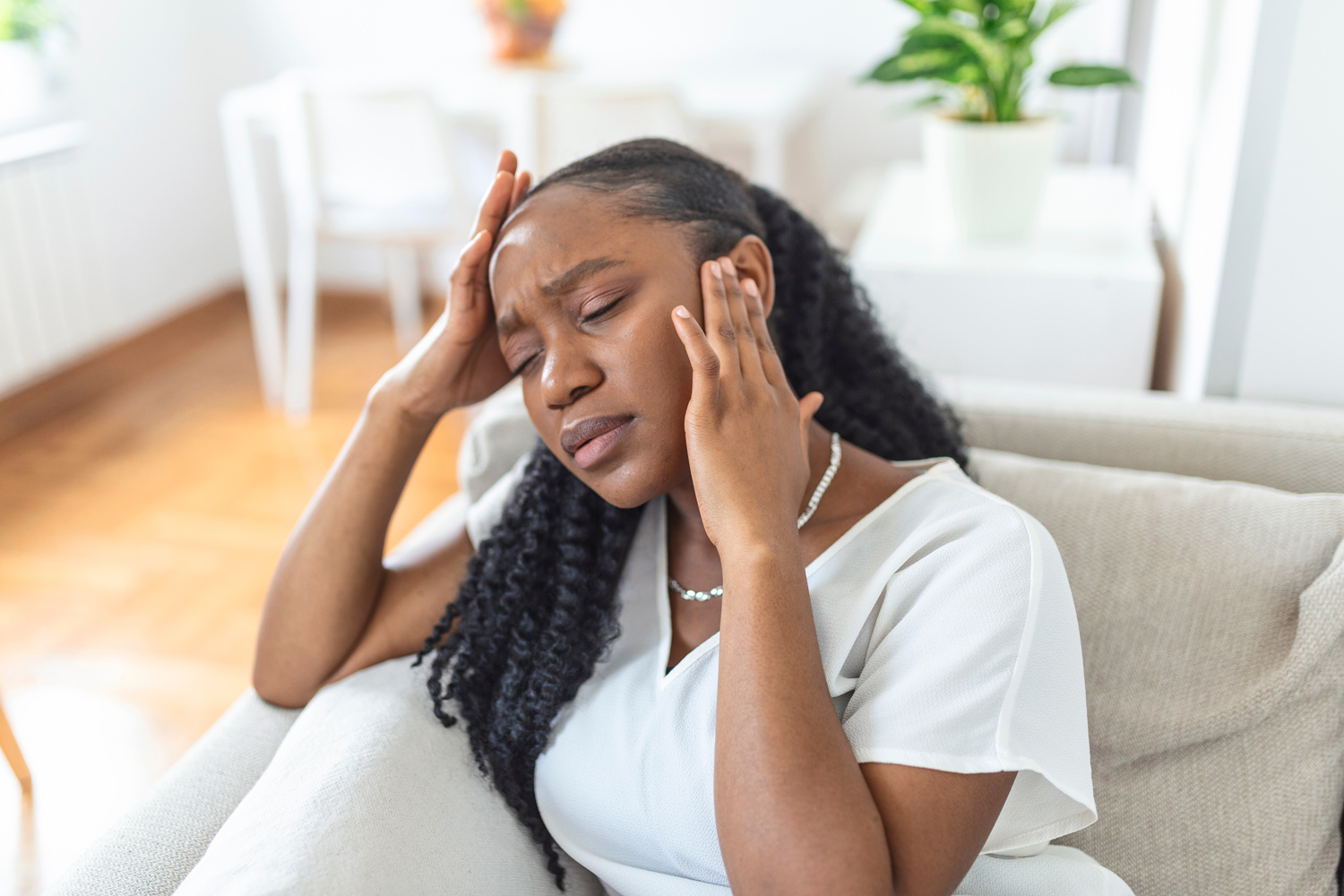If you have sinus pressure or viral infection in your ear, nose, or throat, it’s not uncommon to experience a headache as well. The ear, nose, and throat are connected and surrounded by hollow sinus cavities in the cheekbones, middle of the forehead, between the eyes, and in the nose. When you have sinusitis or tonsilitis, these cavities can fill with mucus and cause sinus pressure headaches. The mucus can also leak into the middle ear (the space just behind the eardrum) and cause an ear infection. Each of these (often viral) infections can irritate the nerves around the face and head and cause headaches or even migraines.
Now that you know the basics of how headaches happen, you may still be wondering, “Can an ear infection cause a headache?” The answer is yes, ear infections can cause headaches and even fevers. Ear infections are more common in children than in teens or adults. If your child has an ear infection or struggles with repeat ear infections, it’s important to visit their primary care physician or local urgent care facility as some cases can cause lasting damage to the ears.
Symptoms of ear infection include:
- Ear pain
- Fever of 100°F or higher
- Loss of appetite
- Irritability
- Loss of balance
- Difficulty sleeping
How to treat a headache with a viral infection
A headache is one of the most common pain conditions in the world, affecting more than 75% of adults each year. It’s characterized by a painful sensation in any part of the head, ranging from sharp to dull, and may occur alongside issues like stress, colds, fevers, sinusitis, throat infections, or ear infections. If you or your child has an ear infection or other viral infection, here are a few things you can do to not only alleviate the symptoms of the infection but also help soothe headaches:
- Over the counter (OTC) pain relievers
OTC pain relievers like ibuprofen and acetaminophen can help control the pain associated with acute otitis media (middle ear infection) and are safe to use with or without antibiotics. Follow the dosing instructions on the label and be sure to check with your primary care physician before giving to babies and young children. - Elevated sleep position
Sleeping with your head elevated will help drain your sinuses, reduce the pressure inside your sinus cavities, and alleviate headache pain. - Cold or warm compress
Place a cold or warm compress over the affected ear and alternate between warm and cold every 10 minutes. If you find one is helping more than the other, you can just use one compress. - Neck exercises
Neck rotation exercises can help alleviate pressure inside the ear canal and alleviate headache pain. - Self-care practices
When you aren’t feeling well, it’s important to take care of yourself. Here are a few things you can do to help relieve cold, flu, and allergy symptoms. These tips can also help soothe headaches and reduce fevers:- Get plenty of rest
- Drink warm drinks and plenty of liquids to help thin mucus
- Drink warm broth or chicken soup
- Eat frozen yogurt or a popsicle
- Try steam inhalation
- Sit in a warm bath
- Apply essential oils like tea tree, eucalyptus, or peppermint to your temples*
*Check with your child’s primary care physician before using essential oils, as some are unsafe for children. If you are pregnant or breastfeeding, also check with your doctor before trying essential oils and other natural remedies.
If over-the-counter medications aren’t alleviating the pain and discomfort of your ear infection, or if your symptoms are getting worse, visit Getwell Urgent Care for same-day ear infection treatment so you can start feeling better, fast. We welcome walk-in appointments 7 days a week.

